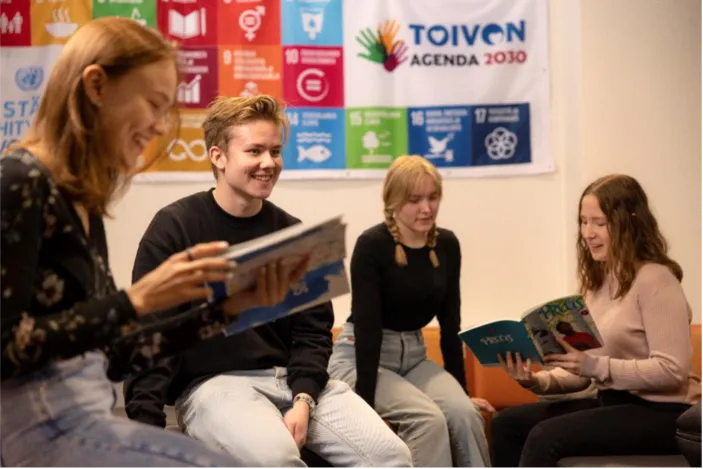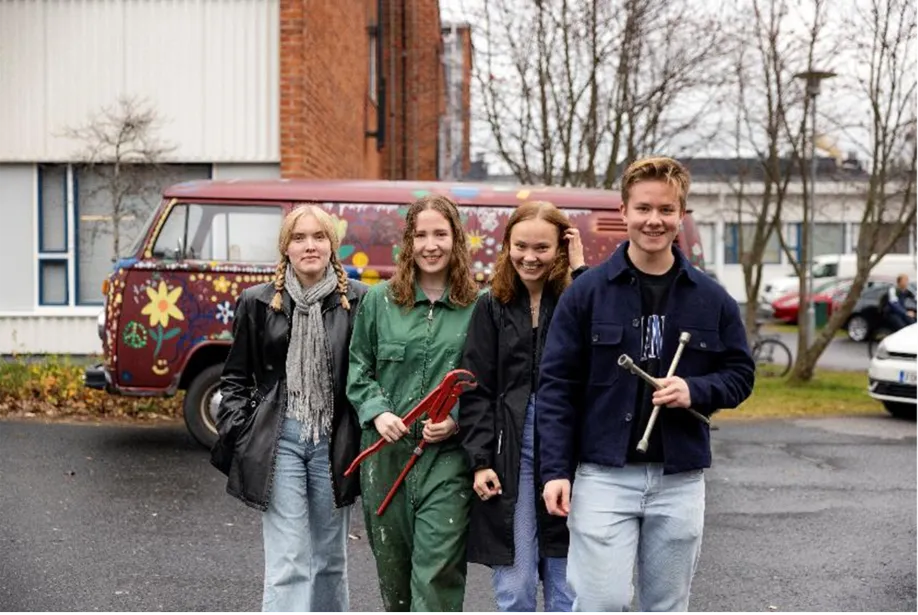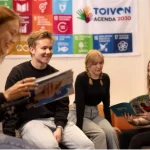Teacher: Paula Ratava

Paula Ratava
Paula is an Advisory Teacher for Sustainable Future in the Educational and Cultural Services of Oulu. She is really keen to provide hope and solutions-oriented education for sustainability. Her most commonly used terms are “realistic hope”, “constructive dialogue” and “the community level of action”. These themes are often missing in schools so using these ideas Paula and a team of teachers created the ‘Repair Manual for Schools’ to help students and school staff to move their schools to be more climate-friendly, the programme is designed to be both supportive and impactful.
Usefull links related to the Solution
Overview
Paula and a team of educators produced a student-friendly ‘Repair Manual for Schools’ which uses the analogy of fixing a van to explain, in an engaging way, how students and the whole school community can take action to move their school towards carbon neutrality. This resource is used alongside open digital badges to guide students along a journey that gives them knowledge and empowers them to make changes.
Theory of Change
The team feels that educators have a responsibility to offer young people signs of hope and to teach them skills, such as resilience and flexibility, to cope in the changing world which is resulting from climate change. The project is designed to empower learners in upper secondary school to take action to ensure that everyone can live a good life within the ecological limitations of our planet. There is also an emphasis on lifelong learning for school staff.
Approach and Actions
The team has produced a website called the ‘Repair Manual for Schools’, the website contains information about how and why students (with assistance from the school community and other stakeholders) can reduce the school’s carbon footprint. The manual is broken down into four key areas – food, infrastructure, transport and attitudes – it also contains a school’s carbon footprint calculator.
Impact
The manual is linked to 42 digital badges which the students can earn. Students can work independently to attain the badges but there is a greater emphasis on them being completed in school- the team sees this as important for reducing climate anxiety, the rationale being that students should get some respite from the pressure to combat climate change when they are at home. Different schools have incorporated the teaching of badges into their curricula in different ways.



